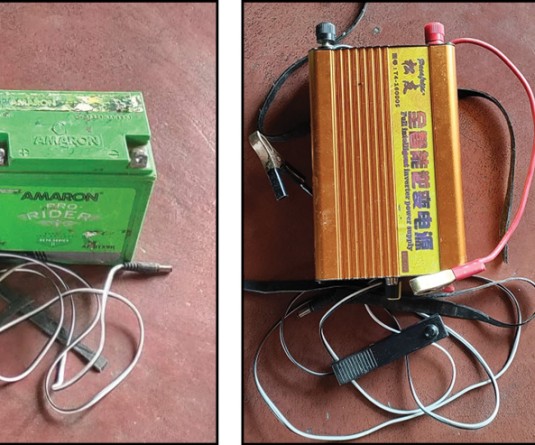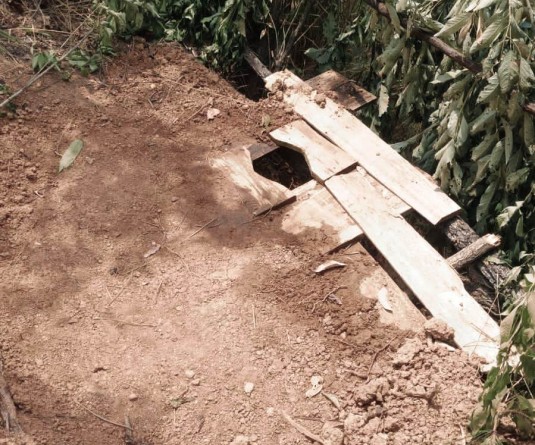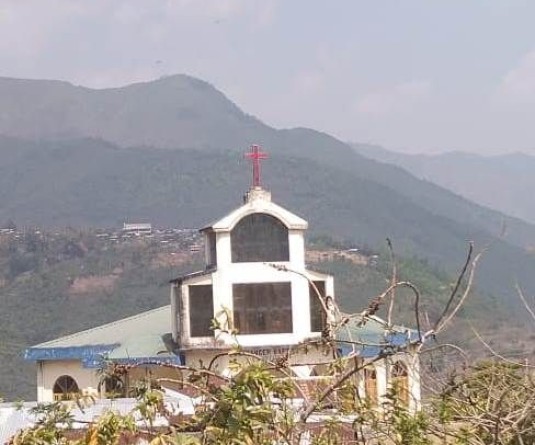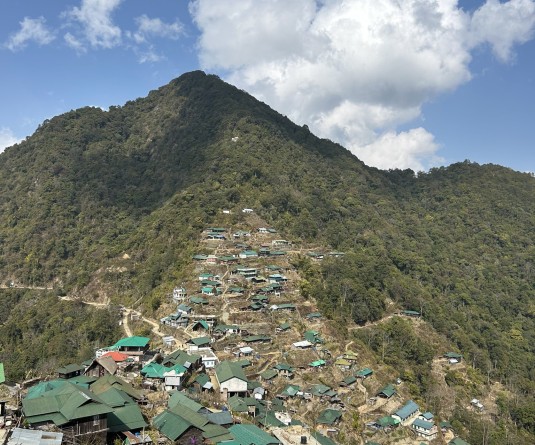
Imti Longchar
Kengjung | February 4
In this sleepy little village at the farthest end of Tuensang district- Kengjung, its inhabitants have been anxiously waiting with excitement and hope for the arrival of a medical team.
Quite understandably, because the villagers would be seeing a doctor(s) set foot in their village for the first time – courtesy of a medical camp organized by the Eden Medical Centre, Dimapur with logistics arranged by the Nagaland Empowerment of People Through Energy Development (NEPeD) on January 29-30, 2017.
Located around 65-70 kilometers of hair-raising and cliff hugging narrow road from Noklak town, at Kengjung village, health is a matter of life and death, literally and figuratively.
After a dusty 5-hour drive on a pick-up truck, the first thing one notices on the countenance of the villagers who had gathered to greet the medical team are heart-rending faces of sickness and malnutrition.
Forget anesthetic, medicine or thread, there is not even a dispensary in the village. The nearest place to avail medical facilities is a sub-centre at Thonokyu, where one only gets the basic of medicines and another is the CHC at Noklak, which is too far.
Even getting there is easier said than done. Every year, from June to October, Kengjung becomes isolated with the roads leading to the village (Thonokyu on one side and Noklak on the other) cut-off due to landslide on several portions of the road.
It is a formidable task for the villagers to clear those obstructions every year. The government department does not come to this part of the region to clear the roads. Every November, the villagers gather to clear the roads so that a lone pickup truck in the village can traverse for supplies and essential items from the town.
Three rivers namely Choklou, Chongmatai and Sukhong run its course through the Noklak-Kengjung road. Just like the roads, every year the villagers construct wooden bridges during the dry season only to be swept away during the monsoon.
The local MLA has not paid a visit to the village in the last four years (after the election) except for a recent programme of the Khiamniungan Students’ Union hosted by the village. The villagers had even sacrificed their daily wages under the MNREGA scheme to hire JCB for clearing the road so that the KSU programme could take place. More than 80% have never taken a medicine
It is in the face of such dismal circumstances that Kengjung village struggles to survive every day. It would be fairly accurate to say that at least 80% of the village had never seen or taken a medicine before, as per their revelation.
The mortality rate explains all. In 2015 alone, from a household of around 83 families in the village, more than 15 succumbed to various diseases. The villagers have lost exact count of how many-15 or 18 or 20. Many of these fallen were children.
Most of the deaths occurred during monsoon when the roads become inaccessible because of landslides. Family members of the deceased would only watch in hapless tears as their near and dear ones writhe their life away in agony. There were many occasion when the village saw even two deaths in a day.
“If there was at least a dispensary in this village, many of the lives would have been saved, Kengjung village council chairman Yamto lamented. According to him, the villagers had appealed numerous times to the government for a dispensary and at least a nurse but to no avail.
“Food, even if meager, we can cultivate on our own to fill our stomach, but medicines? How and where can we get it? It is with such helplessness that here in our village, when there is an illness, the relatives gather around and watch their loved ones die,” the chairman rued.
The mortality rate in the village can be lessened to a great extent if only the village had accessibility to medicines and health caregivers, Mongtsoa, the Pastor of Kengjung Baptist Church felt. With zero awareness and the lack of education on hygiene and knowledge on disease, the matter is further confounded.
Most of the illnesses, according to the Pastor, could be minor ones, which become serious after the patient(s) does not receive medical care for days or month’s end as road communication cuts off for months and not even the basic of medical infrastructure in place. During emergencies, villagers have to carry the patients on their back and walk on foot to get medical help, the Pastor explained.
Except for Kengjung, the other villages in this part of the region at least have a dispensary or basic medical infrastructure at their disposal.
“A lot of lives can be saved if the government can at least provide us with a dispensary. The government of the day should heed our cries, it’s distressing and vital,” chairman Yamto stressed.
Eden Medical Centre treats 536 patients at Kengjung health camp
The lack of access to medical infrastructure was more than conspicuous as people from neighboring villages thronged Kengjung village to avail treatment for various ailments during the free medical camp organized by the Eden Medical Centre, Dimapur.
As many as 536 patients turned up for availing treatment during the two-day medical camp. Indicating the acute lack of medical facilities in the area, many of the patients from neighboring villages Peshu, Chipur, Wui had walked all the way to Kengjung and camped for days before the arrival of the medical team.
A 20-member-team from the Eden Medical Centre, Dimapur with 8 doctors lent their healing hands to provide much needed medical attention to the villagers. The doctors also operated twenty (20) minor surgeries.
Realizing that a onetime medical camp would not be enough to alleviate the health issues of Kengjung village, Dr Lima Imchen, director, Eden Medical Centre asked the village authority to send two volunteers to train on basic medical health care, which would be fully sponsored by the Centre. Not only this, medicines would also be provided by EMC to the village, Imchen assured.
Imti Longchar is a journalist with The Morung Express and had travelled with the team to Kengjung





